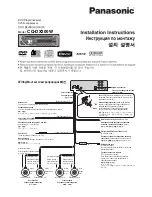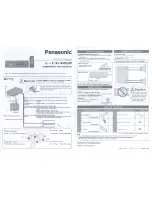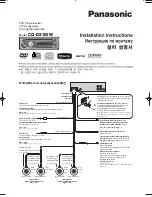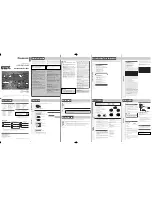
NEO-M9N - Integration manual
3 Receiver functionality
This section describes the NEO-M9N operational features and their configuration.
3.1 Receiver configuration
The NEO-M9N is fully configurable with UBX configuration interface keys. The configuration
database in the receiver's RAM holds the current configuration, which is used by the receiver
at run-time. It is constructed on start-up of the receiver from several sources of configuration.
The configuration interface and the available keys are described fully in the applicable interface
description [
].
A configuration setting stored in RAM remains effective until power-down or reset. If stored in
BBR (battery-backed RAM), the setting will be used as long as the backup battery supply remains.
Configuration settings can be saved permanently in flash memory.
CAUTION
The configuration interface has changed from earlier u-blox positioning receivers.
Legacy messages are deprecated, and will not be supported in future firmware releases.
Users are advised to adopt the configuration interface described in this document. See
legacy UBX-CFG message fields reference section in the applicable interface description [
].
Configuration interface settings are held in a database consisting of separate configuration items.
An item is made up of a pair consisting of a key ID and a value. Related items are grouped together
and identified under a common group name: CFG-GROUP-*; a convention used in u-center and
within this document. Within u-center, a configuration group is identified as "Group name" and the
configuration item is identified as the "item name" under the "Generation 9 Configuration View" -
"Advanced Configuration" view.
The UBX messages available to change or poll the configurations are the UBX-CFG-VALSET, UBX-
CFG-VALGET, and UBX-CFG-VALDEL messages. For more information about these messages and
the configuration keys see the configuration interface section in the applicable interface description
[
].
3.1.1 Changing the receiver configuration
All configuration messages, including legacy UBX-CFG messages, will result in a UBX-ACK-ACK
or UBX-ACK-NAK response. If several configuration messages are sent without waiting for this
response then the receiver may pause processing of input messages until processing of a previous
configuration message has been completed. When this happens a warning message "wait for cfg
ACK" will be sent to the host.
3.1.2 Default GNSS configuration
The NEO-M9N default GNSS configuration is set as follows:
• GPS: L1C/A
• GLONASS: L1OF
• Galileo: E1B/C
• BeiDou: B1I
• QZSS: L1C/A
• SBAS: L1C/A
UBX-19014286 - R07
3 Receiver functionality
Page 8 of 95
C1-Public









































